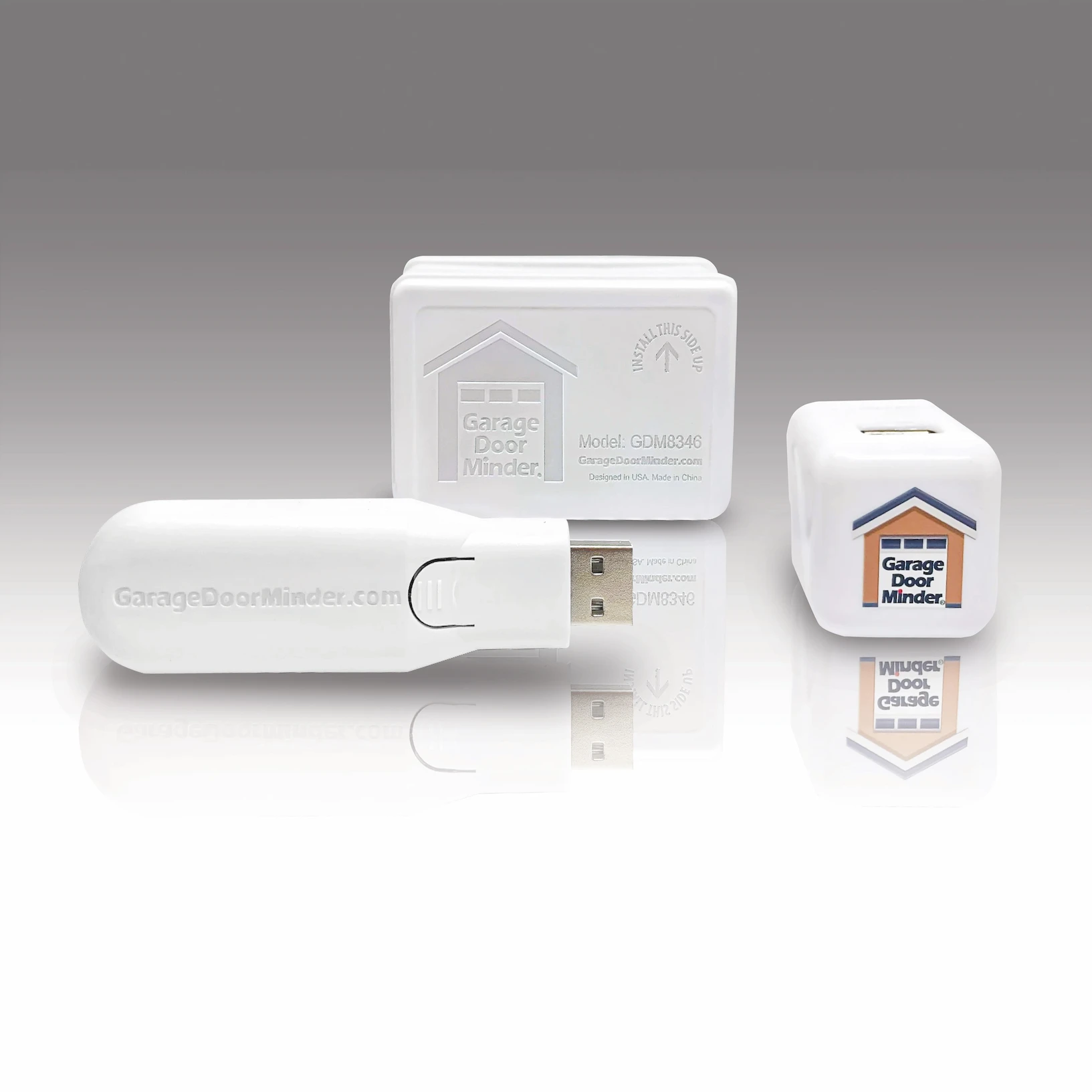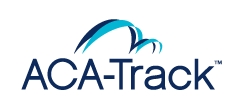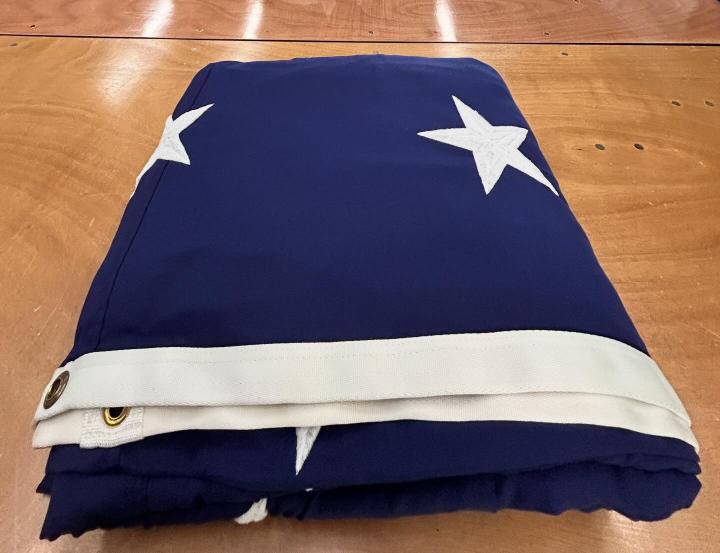Quand on parle de luminaire extérieur montpellier à Montpellier, Lumix Création s’impose comme une référence locale pour celles et ceux qui recherchent des lampes, des créations artisanales, une suspension design, un lampadaire, un plafonnier, des luminaires modernes, ou encore un accompagnement professionnel sur-mesure. Installée à Jacou, à quelques minutes de Montpellier, cette entreprise artisanale française conjugue savoir-faire technique, passion du design, respect des normes et amour de la lumière.
Un luminaire n’est jamais un simple objet décoratif. Il permet d’éclairer, d’illuminer, de structurer un espace, de créer une atmosphère, d’apporter une ambiance chaleureuse et de valoriser un intérieur comme un extérieur. Que ce soit pour une maison, un appartement, un commerce, un restaurant, un hôtel ou un bureau, le choix de luminaires influence directement la qualité de vie, la productivité, la décoration intérieure et la perception d’un lieu.
Chez Lumix Création, chaque lampe, chaque suspension, chaque lampadaire, chaque applique murale, chaque plafonnier est pensé pour offrir un éclairage efficace, durable et esthétique, tout en respectant les attentes des clients de Montpellier et de sa région.
Luminaire et identité artisanale à Montpellier
Fondée en 2016, Lumix Création est une entreprise indépendante spécialisée dans la conception et la fabrication de luminaires de qualité. Son atelier-showroom situé à Jacou, proche de Montpellier, permet de regrouper la conception, la fabrication, l’assemblage, les tests et la présentation des modèles.
Le fondateur, Nicolas Hyjek, est électricien éclairagiste de formation. Cette expertise garantit une parfaite maîtrise des normes, de la sécurité électrique, des composants, des ampoules, des ampoules LED, des culots E27, des flux lumineux, des températures de couleur, du blanc chaud ou du blanc neutre, de la basse consommation et des économies d’énergie.
Chaque un luminaire est conçu pour durer, avec des matériaux soigneusement sélectionnés comme le métal, le laiton, le bois naturel, le verre soufflé, la céramique, le textile, le nickel, le chrome ou le bronze. Cette démarche permet de fabriquer des pièces robustes, esthétiques et responsables, tout en respectant l’environnement et en privilégiant les matières naturelles issues de France.
Un savoir-faire reconnu pour tous les luminaires
L’atelier de Lumix Création se distingue par sa capacité à concevoir et fabriquer une gamme de luminaires exceptionnelle. Chaque création est le fruit d’un travail minutieux qui allie tradition et innovation. Les produits de qualité proposés reflètent l’excellence du savoir-faire français et répondent aux exigences les plus élevées en matière d’éclairage et de design.
Les lampes : essentielles pour structurer un intérieur
Les lampes sont indispensables pour structurer un intérieur et créer une ambiance propice à chaque activité. On retrouve notamment les lampes à poser pour une table basse, une table de chevet ou un bureau, ainsi que des lampes de bureau pour un éclairage fonctionnel adapté au travail et à la concentration.
Les lampes de salon design permettent de créer une ambiance cosy et conviviale, tandis que les lampes de chevet diffusent une lumière douce propice à la détente et à la lecture nocturne. Les lampes industrielles ou vintage apportent quant à elles une touche d’originalité à votre décoration intérieure, en jouant sur les contrastes et les matériaux bruts.
Les lampes à poser : polyvalence et élégance
Les lampes à poser représentent une solution d’éclairage particulièrement versatile. Elles participent pleinement à la décoration intérieure et permettent d’adapter la luminosité à chaque espace selon les besoins du moment. Grâce à des variateurs, des sources lumineuses LED ou halogènes, on peut moduler l’intensité lumineuse et créer différentes atmosphères tout au long de la journée.
Ces lampes s’intègrent harmonieusement au mobilier existant et deviennent de véritables objets de décoration. Qu’elles soient posées sur une console dans un couloir, sur un buffet dans une salle à manger ou sur un meuble d’appoint, elles contribuent à illuminez votre intérieur tout en apportant une touche personnelle.
Éclairage fonctionnel avec les lampes de bureau
Pour un environnement de travail optimal, les lampes de bureau offrent un bon éclairage ciblé qui réduit la fatigue visuelle. Les modèles orientables, notamment les célèbres créations Jieldé, permettent d’ajuster la direction de la lumière selon les tâches à accomplir. Ces luminaires équipés de bras articulés sont particulièrement appréciés dans les bureaux professionnels et les espaces de travail à domicile.
L’utilisation d’ampoules LED dans ces lampes permet de faire des économies d’énergie considérables tout en bénéficiant d’une source de lumière performante et durable. La température de couleur peut être choisie en blanc neutre pour favoriser la concentration.
Les suspensions : cœur de la décoration lumineuse
La suspension reste un élément central dans une pièce. Elle attire le regard, structure le volume et diffuse une lumière homogène dans tout l’espace. Chez Lumix Création, chaque suspension peut être personnalisée selon vos préférences : hauteur d’installation, câble textile aux coloris variés, rosace décorative, nombre de points lumineux, type d’ampoule, finition des matériaux.
On retrouve dans la large sélection de luminaires proposée des suspensions design, des suspensions en verre soufflé à la main, des suspensions en métal brossé ou patiné, des suspensions multiples type pieuvre pour un effet spectaculaire, des suspensions scandinave aux lignes épurées, industrielles avec leurs finitions brutes, contemporaines ou minimalistes.
Les luminaires suspendus : adaptés à tous les volumes
Les luminaires suspendus sont particulièrement adaptés aux grands volumes et aux plafonds hauts, offrant un éclairage général homogène qui valorise l’architecture intérieure. Dans une cuisine, une suspension positionnée au-dessus de l’îlot central devient l’élément phare de la pièce, alliant fonctionnalité et esthétique.
Les suspensions en métal, notamment en laiton ou en cuivre, apportent une touche de sophistication et s’intègrent parfaitement dans une décoration moderne ou industrielle. Pour les amateurs de matériaux nobles, les suspensions en verre de Murano ou en céramique artisanale constituent des pièces d’exception qui transforment l’éclairage en véritable œuvre d’art, à l’image des créations de Jean Perzel.
Les lampadaires : élégance et fonctionnalité
Le lampadaire est une solution idéale pour apporter un éclairage d’appoint sans nécessiter de travaux électriques. Il existe une vaste sélection de luminaires dans cette catégorie : lampadaires design aux formes sculpturales, lampadaires LED économes en énergie, lampadaires orientables pour diriger la lumière précisément, modèles arc qui surplombent élégamment le mobilier, lampadaires industriels au caractère affirmé, ou encore le fameux lampadaire trépied qui combine stabilité et esthétique.
Les lampadaires permettent d’éclairer un coin lecture en apportant une lumière ciblée, d’illuminer un canapé pour des soirées conviviales, d’agrémenter une chambre à coucher d’une source lumineuse douce, ou de compléter l’éclairage d’un bureau professionnel. Ils créent une ambiance chaleureuse et s’intègrent parfaitement dans une décoration moderne, rustique, ou éclectique, fonction de votre style.
Choix et diversité des modèles de lampadaires
Pour choisir des luminaires adaptés à vos besoins, Lumix Création propose une large sélection incluant différents les styles et finitions. Les lampadaires en bois et métal combinent chaleur et robustesse, tandis que les modèles tout métal affichent un caractère industriel assumé. Les versions équipées de bras de lumière orientables offrent une flexibilité d’utilisation appréciable.
La fonction du type de luminaire doit toujours correspondre à l’usage prévu : un lampadaire de lecture nécessitera une lumière directe et ajustable, tandis qu’un lampadaire d’ambiance privilégiera une diffusion indirecte. Les ampoules LED utilisées permettent de prolonger la durée de vie du produit.
Éclairage : maîtriser la science et l’art de la lumière
L’éclairage est une science autant qu’un art. Pour obtenir un éclairage optimal, il faut tenir compte de plusieurs paramètres essentiels : le flux lumineux exprimé en lumens qui détermine la quantité de lumière émise, la température de couleur qui influence l’atmosphère, le type de source de lumière (LED, halogène, incandescence), la diffusion directe ou indirecte selon l’effet recherché, et la consommation énergétique.
Un bon éclairage améliore considérablement le confort visuel, réduit la fatigue oculaire et valorise les volumes architecturaux. Grâce aux technologies LED, il est possible de faire des économies substantielles tout en conservant une excellente qualité lumineuse et une restitution fidèle des couleurs.
Technologies LED et économies d’énergie
Les ampoules LED représentent aujourd’hui la solution d’éclairage la plus performante et écologique. Elles consomment jusqu’à 90% moins d’énergie qu’une lampe à incandescence traditionnelle et possèdent une durée de vie pouvant atteindre 50 000 heures.
Chez Lumix Création, tous les luminaires modernes sont compatibles avec les ampoules LED de dernière génération. Les culots standardisés (E27, E14, GU10) facilitent le remplacement et permettent de choisir la puissance adaptée à chaque usage.
Plafonnier et luminaires : solutions complètes
Les luminaires englobent une large famille de produits essentiels à l’aménagement lumineux : plafonniers pour un éclairage général, suspensions décoratives, lampadaires d’appoint, appliques murales pour les couloirs, spots encastrés, projecteurs, bornes extérieures, lanternes et guirlandes décoratives.
Le plafonnier est parfait pour un éclairage général homogène, notamment dans une cuisine où la visibilité est primordiale, une salle de bains qui nécessite une lumière sans zones d’ombre, ou une chambre d’enfant. Un plafonnier LED offre une basse consommation et une longue durée de vie.
Tous les luminaires pour une décoration cohérente
Pour créer une décoration lumineuse harmonieuse, il est essentiel de combiner différents types de luminaires. L’association d’un plafonnier pour l’éclairage général, de lampes à poser pour les zones de détente, et d’appliques murales pour l’éclairage d’accentuation permet de moduler les ambiances selon les moments.
Lumix Création accompagne ses clients dans cette réflexion globale en proposant une large sélection qui permet d’harmoniser les styles. Le service client expert aide à choisir les luminaires les plus adaptés à votre projet et à votre style déco.
Un luminaire chaleureux pour illuminer votre intérieur
Choisir un luminaire adapté permet d’illuminer votre intérieur et de créer une atmosphère accueillante. Le choix des abat-jour, qu’ils soient en tissu, en rotin tressé ou en papier, des diffuseurs en verre, des matériaux (métal, bois, céramique) et des coloris influence directement la perception de la lumière.
Un intérieur chaleureux repose sur une combinaison réfléchie de sources lumineuses, une lumière douce qui n’agresse pas le regard, une intensité maîtrisée grâce à des variateurs, et une harmonie des couleurs. Pour apporter une ambiance propice au bien-être, il est recommandé de multiplier les points lumineux à intensité modérée.
Matières naturelles et authenticité
L’utilisation de matières naturelles comme le bois massif, le rotin, le lin ou le verre artisanal confère aux luminaires une authenticité incomparable. Ces matériaux, soigneusement sélectionnés et travaillés dans l’atelier, apportent une dimension tactile et visuelle qui enrichit l’expérience lumineuse.
Type de luminaire et mobilier : l’art de l’harmonie
Chaque type de luminaire répond à une fonction spécifique et doit être choisi en cohérence avec le mobilier environnant. Le lien entre luminaire et mobilier est essentiel : une lampe proportionnée sur une table basse, une suspension au-dessus d’un îlot, une applique murale dans un couloir, un plafonnier dans une entrée.
La fonction du type de luminaire doit correspondre à l’usage : lecture avec une lumière directe, détente avec un éclairage indirect, travail avec un éclairage performant, réception avec des luminaires décoratifs.
Les appliques murales : solutions gain de place
Les appliques murales constituent une solution particulièrement intéressante dans les espaces restreints ou pour créer un éclairage d’accentuation. Fixées au mur, elles libèrent l’espace au sol tout en apportant une dimension décorative verticale. Dans un couloir, des appliques murales espacées régulièrement créent un rythme visuel agréable.
Ces luminaires se déclinent dans de nombreux styles, du classique chandelier au design contemporain, en passant par les modèles industriels. Leur positionnement stratégique permet de mettre en valeur des éléments architecturaux ou des œuvres d’art.
Choisir des luminaires adaptés : les critères essentiels
Pour choisir des luminaires qui répondront parfaitement à vos attentes, il est indispensable de tenir compte de plusieurs critères : la surface de la pièce à éclairer, la hauteur sous plafond qui influence le choix entre suspension ou plafonnier, l’orientation de la pièce, le style déco existant, la température de couleur adaptée à l’ambiance recherchée, la puissance en watts, et le rendu lumineux global.
Lumix Création propose une sélection de luminaires de qualité exceptionnelle, une large sélection de luminaires couvrant tous les besoins et tous les styles, une vaste sélection de luminaires permettant de répondre à tous les projets à Montpellier. Cette gamme de luminaires complète garantit que chaque client trouvera la solution parfaite.
Service client et accompagnement personnalisé
Le service client de Lumix Création se distingue par sa disponibilité et son expertise. L’équipe vous accompagne à chaque étape pour aider à choisir : définition des besoins, sélection des produits, calculs d’éclairement, conseils d’installation, et suivi après-vente.
Cette qualité de service s’étend à la vente en ligne où vous pouvez achetez en ligne en toute confiance, avec des fiches produits détaillées et des délais de livraison clairement annoncés. La livraison à domicile est soigneusement organisée pour garantir que vos luminaires arrivent en parfait état.
Modèles de luminaires et les styles : diversité créative
Les modèles de luminaires disponibles couvrent l’ensemble des styles décoratifs : industriel avec ses finitions métal brut, scandinave aux lignes épurées et aux matériaux naturels, contemporain jouant sur les formes géométriques, baroque pour les amateurs de faste, minimaliste pour ceux qui privilégient la simplicité, rustique qui célèbre l’authenticité, design italien reconnaissable à son élégance, ou vintage qui réinterprète les classiques.
On retrouve dans cette riche collection des luminaires design signés ou inspirés des plus grands créateurs, des lustres design qui transforment un plafond en point focal spectaculaire, des suspensions design aux formes sculpturales, des appliques murales design qui allient fonctionnalité et esthétique, des luminaires contemporains qui anticipent les tendances, et des luminaires modernes répondant aux exigences actuelles.
Lustres et pièces d’exception
Les lustres, héritiers d’une longue tradition du luminaire décoratif, sont réinterprétés dans des versions contemporaines qui conservent leur fonction de pièce maîtresse. Qu’il s’agisse d’un lustre en cristal revisité, d’un modèle en métal ajouré, ou d’une création originale, ces luminaires d’exception apportent une touche de raffinement incomparable.
La gamme de luminaires proposée s’étend des modèles accessibles jusqu’aux pièces haut de gamme pour les projets ambitieux. Cette diversité permet à chacun de trouver des produits de qualité adaptés, sans transiger sur la sécurité ou la durabilité.
Apporter une ambiance dans chaque espace
Chaque espace mérite une attention particulière et une stratégie d’éclairage adaptée. Le salon, pièce de vie centrale, nécessite une combinaison d’éclairage général et de lampes d’ambiance. La chambre à coucher privilégie la douceur avec des luminaires permettant la lecture et une lumière tamisée. La cuisine exige un éclairage performant sur les zones de travail complété par un éclairage décoratif. La salle de bains combine éclairage fonctionnel et éclairage d’ambiance.
Un éclairage optimal permet d’apporter une ambiance cohérente dans chaque espace. La modulation des ambiances s’obtient par la superposition de plusieurs sources lumineuses contrôlables indépendamment, permettant de passer d’un éclairage dynamique à une atmosphère intimiste.
Créer une atmosphère pour chaque moment
Créer une décoration passe par la maîtrise des sources lumineuses, l’utilisation de bras de lumière orientables, le choix de luminaires équipés de variateurs, et la création des ambiances appropriées à chaque activité. Cette approche transforme l’éclairage en un véritable outil de bien-être.
Pour les espaces extérieurs, Lumix Création propose une gamme adaptée résistant aux intempéries. Les luminaires d’extérieur permettent de créer une continuité harmonieuse entre intérieur et extérieur, avec des bornes lumineuses, des appliques étanches et des guirlandes décoratives.
Restauration et réparation de luminaires à Montpellier
Lumix Création propose un service de restauration de lampes anciennes, lustres d’époque, suspensions vintage, luminaires industriels authentiques, pièces en verre de Murano, abat-jour anciens, et systèmes électriques obsolètes. Cette activité de réparation permet de prolonger la durée de vie des objets lumineux, de préserver le patrimoine et d’éviter le gaspillage.
La restauration demande une expertise alliant connaissance historique, maîtrise des savoir-faire artisanaux, et compétences en électricité moderne. Ce service s’adresse aux particuliers possédant un lustre familial comme aux professionnels souhaitant redonner vie à des luminaires d’époque.
Luminaires sur mesure pour professionnels et particuliers
Que vous soyez architecte, designer, décorateur, restaurateur ou particulier, Lumix Création accompagne vos projets de création sur mesure, de prototype, de conformité CE et de production. Les luminaires sur mesure sont fabriqués par des fabricants français, avec une exigence de qualité de service et de finition haut de gamme.
Chaque projet commence par des échanges pour définir les besoins, les contraintes techniques, le style souhaité et le budget. Un prototype est réalisé pour validation avant la production finale. Cette approche artisanale permet de créer des luminaires parfaitement intégrés à leur environnement.
Magasin de luminaires près de Montpellier : un large choix
Le showroom situé à Jacou permet de découvrir un large choix de luminaires, de toucher les matériaux, de comparer les flux lumineux et de bénéficier de conseils personnalisés. Cette sélection de luminaires présente tous les styles et toutes les finitions disponibles.
Vous pouvez également acheter en ligne et profiter d’une livraison à domicile, avec des délais de livraison maîtrisés. L’équipe assure un suivi rigoureux pour garantir votre satisfaction, de la commande à l’installation de vos luminaires.
Contact
Nom : Lumix Création – Créateur & Fabricant de Luminaires Montpellier
Site web : https://www.lumixcreation.net
Téléphone : +33 9 86 36 81 71
Adresse : Centre commercial Espace Bocaud, Rue de la Pierre Plantée, 34830 Jacou, France
Description :Lumix Création est un atelier de création, fabrication et restauration de luminaires situé à Jacou, près de Montpellier, au centre commercial Bocaud. Dans notre atelier-showroom, nous concevons des luminaires sur-mesure, pour l’intérieur et l’extérieur : suspensions simples ou multiples, appliques murales, lampes baladeuses, lampes à poser et lampadaires. Nous travaillons aussi bien pour les particuliers que pour les professionnels. Service réservé aux professionnels : étude technique, conception et accompagnement à la mise sur le marché de luminaires conformes aux normes en vigueur. Nous proposons également la réparation et la restauration de luminaires anciens. Vous recherchez un créateur et restaurateur de luminaires à Montpellier ?




